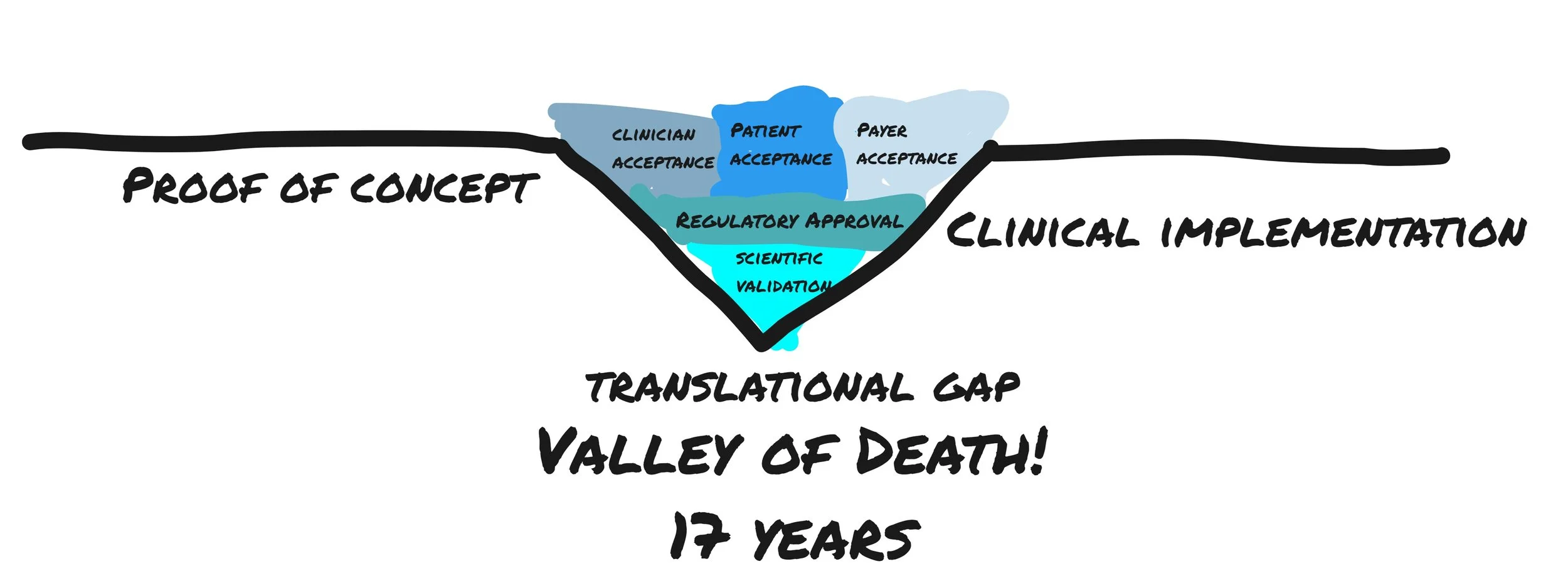
Impact Newsletter
Insights on developing and guiding consortium projects and strategy to achieve meaningful impact.

Moonshot thinking: practical strategies for transforming ideas and data into actionable projects
Moonshot thinking is a strategy accessible to all. Here you will learn practical strategies for transforming ideas and data into actionable projects.

Beginning of the end of the future of medicine?
Why has there been a drop in new drug approvals by the FDA? There are multiple reasons this could be all of which can be addressed by improving the way we work together in life science and healthcare.

Build social capital to get the most out of open innovation networks (consortia, communities, and ecosystems).
Open innovation networks (consortia, communities, and ecosystems) are a great way to build social capital. Social capital is the sum of your relationships and the degree of trust in those relationships.

Multi-disciplinary innovation leadership
Ada Lovelace who is credited with developing the first computer program in the 1800s was the daughter of Lord Byron and therefore fond of poetry.
She saw the beauty of the analytical engine that Charles Babbage was developing which led her to think of ways it could be used beyond just making calculations.

How to lead through uncertainty
If you are genuinely pursuing something ambitious, you will face uncertainty. Before you can accomplish anything meaningful, you must be comfortable with uncertainty.
Take innovation in the life sciences, for example….

Principle #2: Fulfil Both Partner Needs and Project Ambitions
In collaborative ventures such as consortia, alliances, communities or distributed companies it’s important to integrate your own personal or organizational needs with those of the collaborative venture.

Are scientific papers obsolete?
There are some who say that we should get rid of scientific papers…

Principle #1: Engage Stakeholders
Healthcare innovation is plagued by a particularly deep and wide ‘valley of death’. This is largely due to the need to gain the acceptance of multiple different types of stakeholders. Engaging stakeholders is important to all efforts to innovate in healthcare.


On Becoming a Leader in Your Field
This is the first chapter from the book Assembled Chaos. Because the life sciences and healthcare innovation have become so complex it is more important than every that we have leaders in field that leverage collaboration to accelerate the pace of achievement.

Creating a Unified Vision: Strategic Planning in Disease Foundations
It’s a conundrum. You need to conduct fundraising in order to pay for projects, but you need projects to demonstrate progress in order to raise funds. More precisely, you have to select good initiatives that will provide value for sponsors and donors, so you can encourage those sponsors and donors to fund good initiatives that will provide value….

How to keep your medical research relevant in an era of 'big science'
It seemed to me that consortium projects were becoming more prevalent. But I was concerned that I might be suffering from a cognitive bias…

What to think when you are concerned that a consortium project is moving too slowly
Bill Gates is credited with saying that "Most people overestimate what they can do in one year and underestimate what they can do in ten years."
This maxim rings true for consortium projects…

How to use patient centeredness as a framework for creating sustainable, high performance biomedical R&D consortia
No one likes to have to repeat a long title of a concept, organisation or project. This is why we love acronyms. The best acronyms replace the full name and often you forget or never even know what the acronym stands for. Case in point: what does CAPTCHA stand for?

How to avoid the rejected grant proposal blues
It’s ’s frustrating.
You and your partners worked hard to come up with some exciting concepts. By the time you submitted everyone was enthusiastic. A few of you may have also been sleep deprived. You were hopeful that you will get to work on a project that will make a difference. Then…

What you can learn from Monty Python about the power of collaboration
Knights who call themselves The knights who say ‘Ni’ and demand shrubbery as a sacrifice?
It is hard to imagine how the comedians of Monty Python came up with such an off the wall idea. No doubt they all possess genius level creativity…

Conflict resolution in a collaboration without having to resort to compromise
A fear that haunts everyone in a collaboration is having to compromise. That is how you achieve conflict resolution isn't it?
Not necessarily. In fact if you resort to compromise you are not tapping into the one of the advantages of working in a collaboration…

Why collaborating on a societal level is the new way to solve big problems in medicine
In today's translational research landscape you have to collaborate to compete...

The 7 deadly sins of collaboration and how to mitigate their impact
I was a pulmonologist and a researcher with my own lab at the University of Vermont. I met my future wife, a Belgian, and as our relationship grew we agreed to try to move to Europe if I could find work as a physician researcher. After a year or so that seemed to be the case…

Warning! Research proposal preparation can harm your research
What would you rather do: analyze some really interesting data that shows unexpected results, or merge 5 versions of a 115 page branched document?
